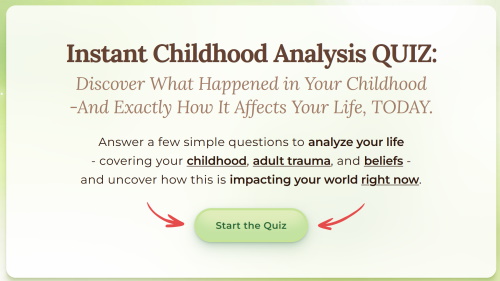Many people associate mindfulness and meditation with sitting still and ‘doing nothing.’ However, nothing could be further from the truth. Even though they are practiced in many different forms, at their core mindfulness and meditation are essentially active processes to train our brain’s to be ‘more present,’ and accountable for their thoughts.
Mindfulness and meditation practices help with ADHD because they ‘bring us back to ourselves,’ to our current thoughts feelings, and intentions. This takes us out of living in autopilot mode and puts us in an intentional and aware state of being. And it is these attention-focusing benefits learned from practicing mindfulness and meditation that people with ADHD benefit from.
When our minds are trained to remain in the present moment, we are not easily distracted, we can remain calmer, and we are able to maintain better focus. So, even though we may not be able to concentrate at present, with practice, we can learn to return our attention to an anchor of our choice. And this brings us to the whole point of developing a mindfulness or meditation practice…… the benefits gained mean we can achieve better outcomes in all our pursuits.
Can Mindfulness and Meditation Help with ADHD?
According to a 2017 survey by ADDitude magazine, more than a third of adults with ADHD use mindfulness meditation. And 40% of them rate their practice as very beneficial. So for anyone still struggling to manage stress, pay attention, complete tasks, manage time effectively, or even just sit still, if you haven’t already tried mindfulness and meditation, it’s well worth the time and effort to learn.
For many adults and children with Attention Deficit Hyperactivity Disorder, the greatest challenges each day are retaining attention and self-regulation (appropriately managing emotions, behavior, and body movements when faced with a tough situation.) Therefore, any natural therapy that helps develop self-control is going to be of massive benefit.
Mindfulness and meditation practices have already been part of many cultures’ spiritual traditions for centuries. So these are not new unproven concepts we are talking about. Both practices aim to develop attention to thoughts, feelings, and bodily sensations. And the upside to this is that we learn to choose better actions, self-regulate stress, and have better relationships and communications with others. Learning to take a breath before reacting impulsively, which is often a big problem for those with ADHD, is a major benefit.
All this means is that the practitioner becomes more self-aware of their mental, emotional, and physical state, within their environment, moment by moment. The benefits that come with awareness also include the ability to self-regulate thoughts, emotions, and physical health. This means we have more choices available and can choose the best experiences and achieve the best outcomes at all times.
Are Mindfulness and Meditation Proven Strategies for Helping People with ADHD?
 Despite the lack of large and high-quality studies on the benefits of meditation for ADHD patients, many smaller studies and much subjective evidence exist indicating that millions of people find meditation helps them focus and become calm.
Despite the lack of large and high-quality studies on the benefits of meditation for ADHD patients, many smaller studies and much subjective evidence exist indicating that millions of people find meditation helps them focus and become calm.
According to Cory Whelan, in his article for Healthline.com, 8 Tips for ADHD Meditation, “ADHD-related behaviors, such as trouble focusing, hyperactivity, and impulsivity, may all be reduced through meditation.” And he cites one review of 13 studies (with 753 adult subjects) that found mindfulness-based interventions, including meditation, had benefits for the reduction of ADHD-associated behaviors.
So even though the possibility of someone with ADHD ‘becoming still’ to practice meditation and mindfulness may seem challenging, not only is it possible, but results prove that it’s beneficial. Most ADHD-associated behaviors such as trouble focusing, hyperactivity, and impulsivity can be managed to varying degrees, depending on each individual.
Benefits are wide-ranging and include an improved ability to focus and sustained attention, a boost in self-esteem, improved emotional regulation, reduced impulsivity, less aggression, more self-control, the ability to think with more flexibility, lower levels of stress and anxiety, and improved working memory times.
As with all human conditions, there is never just one answer. Other lifestyle treatments to help those suffering from ADHD also include behavioral therapy, dietary changes, a reduction in distracting influences, nutritional supplements, a regular exercise routine (yoga is great), less screen time, and more time in nature. And as with meditation and mindfulness, these adjustments to our lifestyles don’t require a prescription or a visit to the therapist’s office.
How Does Practicing Meditation and Mindfulness Help with ADHD?
Our brains are like any other muscle in our bodies. If we exercise them, we will strengthen them. This means that an unfocused easily distracted mind CAN BE TRAINED to become more self-aware and can learn to focus on desired situations and outcomes.
 With self-awareness, we learn to realize when our minds are wandering ‘off track’ as well as how we are feeling. And understanding these two things is crucial to regulating how we will behave. Developing greater awareness allows us to choose our reactions instead of acting impulsively. This is beneficial as it helps us control anxiety, stress, and also depression, (often people with ADHD feel they react inappropriately and it makes them feel bad.)
With self-awareness, we learn to realize when our minds are wandering ‘off track’ as well as how we are feeling. And understanding these two things is crucial to regulating how we will behave. Developing greater awareness allows us to choose our reactions instead of acting impulsively. This is beneficial as it helps us control anxiety, stress, and also depression, (often people with ADHD feel they react inappropriately and it makes them feel bad.)
According to webmd.com, “Meditation is thought to help with ADHD because it thickens your prefrontal cortex, a part of your brain that’s involved in focus, planning, and impulse control. It also raises your brain’s level of dopamine, which is in short supply in ADHD brains.”
Mindfulness-based therapies are frequently used to help minimize stress, treat anxiety and depression, and improve overall physical health and well-being. And according to therapist Billy Roberts, “The primary goal of meditation is to sit with one’s thoughts, emotions, and sensations without judgment. It’s about both the awareness of awareness and the ability to be nonjudgmental with yourself.”
Some Of The Benefits Of Mindfulness Meditation For People With ADHD Are:
1) Improved focus: Mindfulness meditation can help to improve focus by teaching you how to focus your attention on one thing at a time. This can help you to improve your focus in other areas of your life, such as school, work, and relationships.
2) Reduced impulsivity: Mindfulness meditation can help to reduce impulsivity by teaching you to observe your thoughts and feelings without judgment. This can help you to slow down and make more mindful choices in the moment.
3) Improved emotional regulation: Mindfulness meditation can help to improve emotional regulation by teaching you to accept your thoughts and feelings as they are without judgment. This can help you to manage your emotions in a more healthy way.
4) Improved self-awareness: Mindfulness meditation can help to improve your self-awareness by teaching you to pay attention to your thoughts, feelings, and bodily sensations. This can help you to better understand yourself and the way you are reacting to the world around you.
5) Reduced stress and anxiety: Mindfulness meditation can help to reduce stress and anxiety by teaching you to relax and let go of negative thoughts and emotions.
6) Improved sleep: Mindfulness meditation can help to improve sleep by teaching you to relax and let go of worries and concerns.
7) Increased overall well-being: Mindfulness meditation can help to increase your overall well-being by teaching you to appreciate the present moment and to live in the here and now.
Mindfulness meditation is a safe and effective way to improve your overall well-being. If you are interested in learning more about mindfulness meditation, talk to a qualified meditation teacher to find out if it is right for you. Alternatively, you can learn more coping strategies from the good people at Online Therapy.
Online therapy is growing in popularity these days as it is more affordable and more convenient than having to go to a therapist’s office. You can choose from thousands of qualified mental health practitioners and connect when it’s convenient for you by video chat, phone calls, and texting for immediate help with any issue you are facing. Check out Online-Therapy.com and get 20% off with this link > > >
Which Schools of Mindfulness or Meditation are the Best to Learn From?
Mindfulness, meditation, and ‘mindfulness meditation’ are taught in many different ways, utilizing different techniques. However, they are always striving to reach similar end goals. The goals are always about developing more self-awareness, more self-discipline, and more awareness of our environment.
So even though many teachers of these mind-based therapies will tell you that their way is the best, it pays to remain open-minded and explore more than one or two techniques. Because we are all individuals, some of us will naturally gravitate towards one way of learning and developing ourselves, and others will benefit from using other techniques.
 A simple way to begin is to find an ‘anchor’ that we can return our attention to every time the mind wanders, (such as our breath or a mantra). The constant attention to the present moment (back to our anchor) is what strengthens our ‘attention muscles’ which help control our ADHD symptoms. And with continued practice, we will more easily be able to remain attentive, be aware of and choose our emotions, and complete tasks we set for ourselves.
A simple way to begin is to find an ‘anchor’ that we can return our attention to every time the mind wanders, (such as our breath or a mantra). The constant attention to the present moment (back to our anchor) is what strengthens our ‘attention muscles’ which help control our ADHD symptoms. And with continued practice, we will more easily be able to remain attentive, be aware of and choose our emotions, and complete tasks we set for ourselves.
Everyone can meditate! If you have a mind, you can meditate. And with practice, your ability to remain attentive grows from seconds to minutes, and maybe even to hours at a time. Mindfulness and meditation are skills that once learned can be taken anywhere….. even going for a walk, working in the garden, or spending time with a loved one. Basically, any task we are doing can be improved with the developed understanding and attention we give to it by applying our focused attention to it.
What is the Best Way for Someone With ADHD to Practice Mindfulness or Meditation?
Developing foundational skills is the most difficult part of learning anything new, and mindfulness and meditation are no different. However, certain techniques are time-proven to work for nearly everyone. They include:
– Set aside a regular time during the day that you will dedicate at least 5 to 10 minutes (initially) to practicing meditation. Just after waking up in the morning and just before going to sleep at night are great times because our brainwaves are already operating in a more relaxed state. However, any time of the day is great.
– Find a place where you are comfortable, where you won’t be disturbed, and where you can remove distractions (like cell phones.) Initially, it doesn’t really matter if you sit, lie down, or stand on your head. You just need to be comfortable for 10 minutes so your mind won’t be distracted by body pain. Wear comfortable clothing so your tight pants are not distracting.
 – You may like to use a ‘Brainwave Entrainment Audios’ to help your brainwaves easily and naturally slip into a deeper meditative state. The Zen 12 Meditation Program is one such product I use and recommend.
– You may like to use a ‘Brainwave Entrainment Audios’ to help your brainwaves easily and naturally slip into a deeper meditative state. The Zen 12 Meditation Program is one such product I use and recommend.
– Close your eyes to reduce visual distractions and place your attention on your breath. Don’t try to control it, but just notice the pattern of your breathing. It will naturally change by itself as you become more relaxed. If possible, breathe in and out through your nose…… feel the breath entering your nostrils and filling your lungs. Notice how your chest and stomach rise and fall as the breath comes in and goes out. Don’t judge anything about it…. just be aware of it.
“Everybody is a genius. But if you judge a fish by its ability to climb a tree, it will live its whole life believing that it is stupid.” – Albert Einstein
– Your attention is going to wander, as it does for everyone. This is no big deal, but just a natural part of the learning curve. Once you notice that your thoughts are somewhere else, just appreciate that you noticed and can return your attention to your breath or your mantra. Two mantras I sometimes use are “Everything is as it should be” and “Everything is always working out for me in the best possible way and in perfect timing.”
– Make it a habit, and just do it whether you feel like it or not. Your body and mind will quickly realize you are committed to practicing regularly and will soon accept this as a ‘new normal’ part of your day. And then you will begin to look forward to your practice, begin extending the time you practice, and even begin practicing more often.
 – Incorporate it into our daily activities. If we don’t want to isolate ourselves, we can make the process our own by integrating more mindfulness into any activities we are doing. It may be something as simple as being more aware while washing the dishes, driving the car, playing the guitar, or walking on the beach.
– Incorporate it into our daily activities. If we don’t want to isolate ourselves, we can make the process our own by integrating more mindfulness into any activities we are doing. It may be something as simple as being more aware while washing the dishes, driving the car, playing the guitar, or walking on the beach.
– A way to gather support if you need it is to join a meditation group. By doing this, you can commit to a regular schedule, and have the peer group support of other like-minded individuals.
– Give yourself time to slowly come out of the practice. Notice how your body feels, and what thoughts are traversing your mind. What about your immediate environment? What’s it like to be where you are now?
It’s not always going to be easy, but a solid Mindfulness or Meditation Practice Is Worth It!
Even though it’s not always possible to control all aspects of our environment, like the noises, brightness, and other distractions, it is still always possible to practice mindfulness and meditation. You will learn, with time, to filter out and ignore unwanted distractions as you constantly return your attention to your anchor.
It’s important to realize that there are no mistakes while meditating. It is something we practice…. And as with everything we are not proficient at, we will deviate from our goals at times. So be kind to yourself, and cut yourself some slack when your mind wanders or your body is restless.
With time, the practice becomes easier and the benefits to your overall well-being become greater and greater. After all, you didn’t learn to walk or drive a car in a day and you probably had to study for years to learn what is required for your job. Keep practicing and soon enough, you will be able to incorporate mindfulness techniques into more and more aspects of your regular daily life.
Lidia Zylowska from the UCLA Mindful Awareness Research Center (MARC), proposed that the versatility and flexibility of mindfulness allow for individuality to the approach so that each of us can tailor it to work for us. She finds one approach particularly beneficial:
“We use visual aids, like a picture of a cloudy sky, to explain the basic concepts, because people with ADHD tend to be visual learners. The blue sky represents the space of awareness, and the clouds represent all the thoughts, feelings, and sensations that pass by.”
The main long-term aim of learning mindfulness and meditation is that we can take the practices into our everyday lives. This means we can become more aware of where our attention is while engaged in our everyday routines. And the benefit of this is that we begin to recognize when we are becoming stressed, anxious, or depressed…… once these negative states are realized, we can then snap out of them more quickly and easily before they take hold of us.
This post is not intended to be medical advice, and if you consider that you or your loved ones are suffering from ADHD, the best course of action is to seek appropriate professional medical advice.





I think that meditation is incredibly powerful, it’s one of the only ways for me to stay grounded in my busy busy life. It’s hard for me to not feel overwhelmed, there’s always soo much to do, and I can’t help but constantly be worrying about it!
For me, meditation is one of the only tools I have that I can use to calm down and tell myself that… it’s okay to not get everything done today, it helps me decompress from all of the stress.
Thanks for this article!
Hi David,
Thanks for sharing your experiences with meditation.
It’sgeat that you benefit from practicing…. as I do. It’s really the only non-drug-induced way for most people to ‘keep it together’ when life gets really busy.
Keep it up mate and life just gets better and better.
I wish you all the best,
Andrew
Being mindful and practicing meditation to help with ADHD does seem to take effort. We watched the video and it helps with learning new meditation techniques. We do believe this could help if a lot more adults and children would try meditation. It is not an easy task to sit still and meditate for a period of time if you have ADHD. However, the more we practice and believe, the more it will help.
Cheers,
MnD
Yes, I agree. Meditation is more challenging for those with ADHD than for those without it.
However, the results from those that do try it speak for themselves. Not only is it possible, but it is also extremely beneficial….. as it would be for every one of us if we just committed to a regular practice.
Give it a go!
Cheers,
Andrew
This is a very helpful article! It is very difficult for someone with ADHA to concentrate but this article shows that it is possible with constant practice. I’ve tried meditation many times but I tend to give up because I get anxious expecting results right away. But I will try to follow this advice to see if it works for me.
Thank you
Thanks for taking the time to read my post.
The information is good as it comes from a range of professionals within the field. All that is required then is a commitment to follow through until you get results.
I would love to hear about your experiences again in the near future if you have time to revisit my site.
I wish you all the best,
Andrew